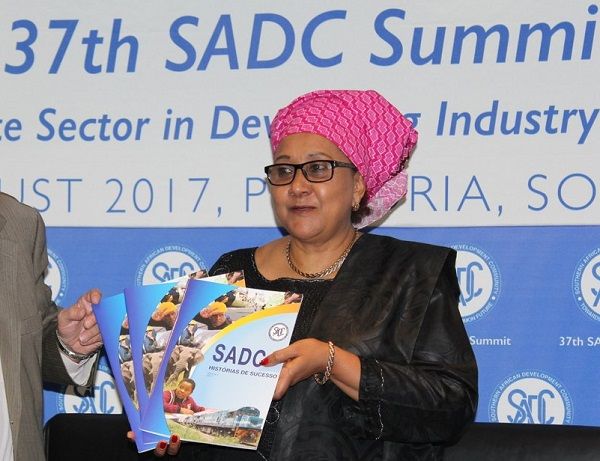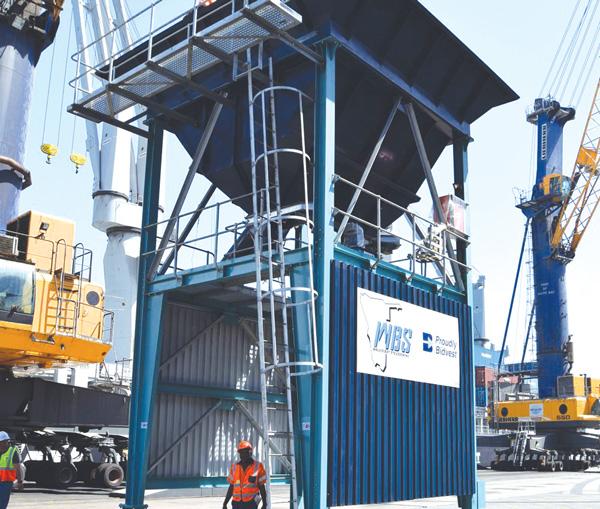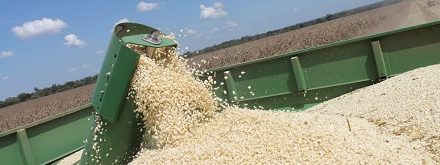
Plenty of green shoots at SADC Summit in Pretoria

By Nyarai Kampilipili in Pretoria for Southern African News Features produced by the Southern African Research and Documentation Centre (SARDC)
[email protected]
SADC Executive Secretary, Dr Stergomena Lawrence Tax told the 37th Ordinary Summit of SADC Heads of State and Government in Pretoria, South Africa which opened on 19 August that the overall “macroeconomic situation and economic performance in the SADC region has remained positive, registering an upward trend in economic performance, albeit at a decreasing trend.”
She said Gross Domestic Product (GDP) growth in the region stood at an average of 2.4% in real terms in 2016 compared to 3.3% in 2015.
The slowdown is attributed to “regional shocks emanating from negative weather patterns, weak commodity prices, and the continued sluggish performance of the global economy since the 2009 global economic crisis.”
She, however, said “prospects for 2017 show a slight improvement as economic growth is expected to increase to an average of 3.6%.”
This is still far below the regional target of 7% annual economic growth for all member states.
Dr Tax warned that inflationary pressures continued to mount in the region, with some member states registering double digit inflation rates during the past year. “The regional average inflation rate stood at 10.2% in 2016 compared to an average of 5.8% in 2015,” she said.
Cost-push factors largely driven by weakening currencies and food shortages as a result of drought in some parts of the region during the 2015/16 agricultural season, resulted in most member states recording rising inflation in 2016. The average inflation rate is projected to slow down to about 8.7% in 2017. The regional target is for all member states to maintain their inflation rates within the 3-6% range.
Intra-SADC exports increased to US$35.8 billion in 2016, representing 23.5% of total exports of the region compared to 22.8% in 2015, according to Dr Tax.
She encouraged member states to implement policies that could cushion them against shocks that undermine their economic growth, for example the SADC Industrialization Strategy and Roadmap stresses the importance of industrial development as a crucial factor in poverty alleviation and the economic emancipation of the people of the region.
Dr Tax said the private sector has a crucial role to play in the development of value chains in the three priority areas of mineral beneficiation, pharmaceuticals and agro-processing. “While our Industrialisation trajectory has been set, implementation and financing of industrialisation remain critical, and we encourage the private sector to partner with the region by investing in these high impact and profitable regional value chains,” she said.
She called upon international cooperating partners and other organisations to align their support at national level with regional value chains development.
Frontloading industrialization under the theme “SADC Strategy for Economic Transformation: Leveraging the Region’s Diverse Resources for Sustainable Economic and Social Development through Beneficiation and Value Addition” remains the major transformation trajectory.
This theme echoes the urgent need for the region to leverage its abundant and diverse resources, especially in agriculture and mining, to accelerate industrialization through beneficiation and value addition.
To operationalize this theme, the SADC Industrialization Strategy and Roadmap was approved in April 2015. The agenda was carried forward by the August 2015 theme “Accelerating Industrialization of SADC Economies through Transformation of Natural Endowment and Improved Human Capital, and the August 2016 theme “Resource Mobilization for Investment in Sustainable Energy Infrastructure for an Inclusive SADC Industrialization and for the Prosperity of the Region.”
Source: Southern African News Features SANF 17 no 40, August 2017













































